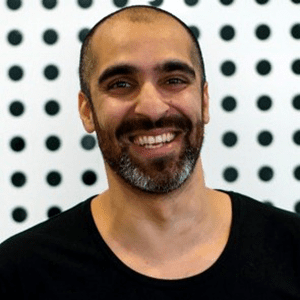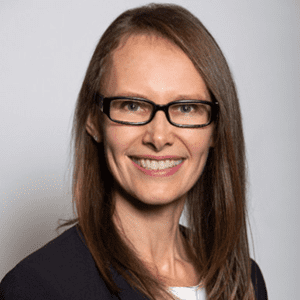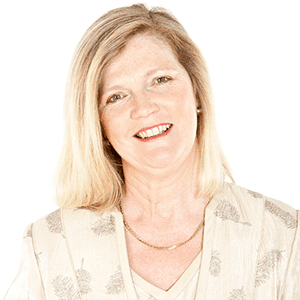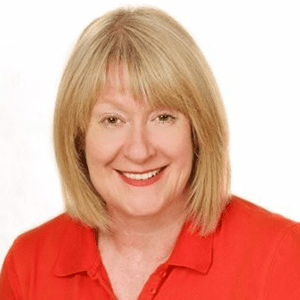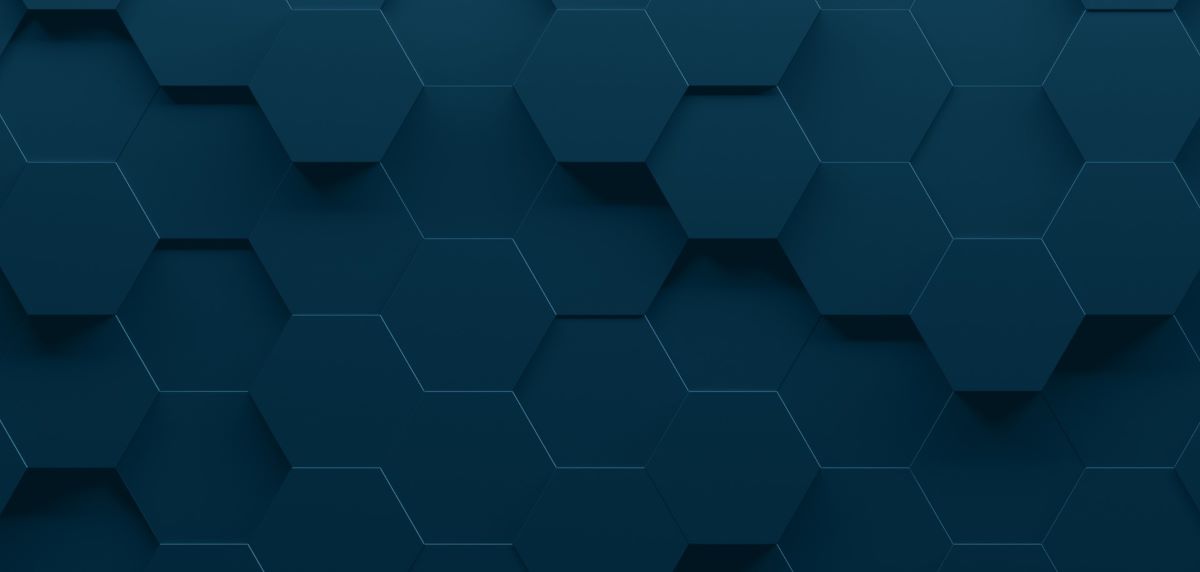
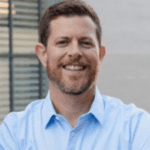
SME Reflections on 2020 – Challenging, scary but enjoyable?
David Lawrence reflects on his experience in business over 2020….Challenging, scary but enjoyable? ‘The most enjoyable year in business’ … well that’s because David is a natural problem solver!
He shares how they addressed their most important challenge this year and that was ‘people’…their team and their clients. People being their greatest asset and the importance of giving them certainty one way or the other.
The conversation moves to the all-important issue for most business leaders and that’s about the future of work and getting the balance right as they move into 2021. David also talks about how his peer advisory group supported him throughout 2020 with all it’s ups and downs and so much more…
A great listen for all business leaders!
Stephanie: Hello, and welcome to TEC Live. Stephanie Christopher here, Chief Executive of The Executive Connection. TEC connects CEOs, executives, and business owners to the world’s largest business leader network. Today our guest is David Lawrence, the managing director, and co-founder of Rocket, a multiple award-winning Australian digital marketing agency, and co author of the Amazon number one best-selling marketing book, Smarter Marketer. He’s built four seven figure businesses and successfully exited two of them. David’s also a speaker and presenter on a range of marketing and business topics. And David Lawrence, welcome to TEC Live.
David: Hey Steph, great to be here.
Stephanie: Yeah. Good to have you here. This is actually the last podcast that we’re recording for 2020.
David: Wow, I feel special.
Stephanie: Yeah. You are, you’re very special. And we’ve been chatting about, there’s so much we could talk about today, and I’m sure a lot of it will be woven into the discussion of your experience in business, but I’d love to know about your experience in business in 2020.
David: That’s a great question. Without a doubt, it’s been the most surprising year that I’ve ever had in business. There’s no doubt about that. And I think people automatically put negative connotations on 2020 when they think about all the things we’ve gone through, but we’re reflecting as a leadership group just recently, actually on the kind of 2020 we’ve had. And for many of us, we’ve found it’s actually been the most enjoyable, challenging for sure, and scary for sure, but the most enjoyable year professionally that we’ve had for a whole variety of reasons.
Stephanie: So tell me, from your point of view, what are the reasons for you it’s been one of the most enjoyable you… Well, you said to me on the way, the most enjoyable year in business for you-
David: Yeah absolutely.
Stephanie: I think you said, yeah.
David: I think for me at my core, I’m a problem solver. If I’m doing the same job for too long and by the same job, I mean the same tasks often over and over, I’ll become very bored and will slowly lose interest in it. And so for me, 2020 has literally been one huge problem to be unpacked. And when you’re working in SME, you have limited resources of course to solve your problems. And so with a lot of the complexity, in some ways, stripped out of business, it’s been a matter of trying to find great solutions to problems that you may not even fully understand the extent of those problems yet.
Stephanie: So what’s one of the problems that you think you addressed most effectively this year?
David: For us, we’re an agency, so it’s a services business, the most important asset we have in our business is the people. When we first started hearing about this virus that was coming Australia’s way, we worried about the business side of things, but we were especially worried about how our team and our clients were going to respond to it in terms of the fear that people would bring to things in terms of decisions people would make under pressure. So we put a lot of effort in the initial stages in of course the financial side of the business to make sure that we are going to be safe. But also in terms of making sure that our greatest asset, our people we’re going to be not only working at their best, but understanding what their future looked like, and giving them certainty one way or another about how things were going to work.
Stephanie: I think that’s been really important, hasn’t it? I can think back to maybe the first or second week in March having the team sitting down. And I remember one of them saying, ‘Are you saying that this is really going to happen, that we’re all going to work from home?’
David: 100%.
Stephanie: Scared.
David: Yeah terrified.
Stephanie: Which is so funny now, if I said it to that same team member, ‘Remember when you were scared about working from home?’ And was that something for your team as well, they were anxious about what was happening?
David: So, much. So we had realised early in March, as a lot of people had that things were going to change dramatically. We had been really reading quite widely on the topic, and doing as much research. And we made the decision that we’d have an all team staff meeting on a Thursday early in March, and just get up and talk about what COVID was. And for some people they certainly didn’t know what COVID was, and they certainly had no idea how it was going to affect them, it was still something happening off shore. So we did a large staff meeting, took people through what COVID was, what it was doing in other countries, the view of experts, because we’re certainly not experts in a pandemic, but the expert’s view of what was going to happen in Australia. And explained to people that we would be making the decision to work from home shortly, and they should assume it was going to be the following Monday.
And I finished the staff meeting and the general reaction from people was, ‘Well, that’s a bit of an overreaction. Hardly any cases, or maybe even no cases in Australia. Why get people scared?’ And I actually thought for a second, ‘Oh, wow, I’ve really jumped the gun here. I’ve unnecessarily worried people.’ We had a team building activity that night and we went out and had a great time and were sitting huddled around, really the way we all used to socialise, and came into work on the Friday, and literally everything had changed. And there wasn’t a single person by the end of the Friday who felt there’d been an overreaction. All of a sudden people were genuinely worried.
But I think the fact that they had a plan that from the Monday onwards we’d be working from home, it did calm people down. I think it still took many, many weeks for people to understand how big the impact was going to be. I think there was still a feeling, it’s probably echoed the Scott Morrison view. This is going to last for six months, even though we probably didn’t really believe that either. I think it took a while for people to realise that their hastily hacked together home offices really were going to be their workplace for most of the year.
Stephanie: Okay. So problem solving with a plan, and you said something then that I think is really interesting. Because of the response of your team you even questioned, ‘Wait a minute, am I heading in the right direction or not?’ And then you thought, ‘No, this is the right thing to do.’ How much of that do you think you’ll take forward into the rest of your business life?
David: Yeah I think a lot of it. So we’ve always been fairly proactive with our communication to the team. We’re transparent about lots of issues facing the business and the industry as a whole. We’re quite transparent about the performance of the company, but there’s always a lot of thinking that goes into how and when to have those conversations. And I think what 2020 has taught us is that people would rather know your view of what’s going on and the direction you intend to take, even if it doesn’t turn out to be accurate. And there’s been so many things in 2020 that no one’s been able to predict, but people just want to know that you’re thinking clearly about things and you’re putting a plan together. So, I’ll probably in the future try to be a little bit less exact before I speak. I think that obsession with being perfect and never having to admit that you went in the wrong direction, we’ve all gone in the wrong direction in 2020 in different ways and that’s been okay.
Stephanie: Nice. Nice. What else have you personally enjoyed about this year in business?
David: I’ve enjoyed seeing people learn a new way to work and thrive in it. One of the things that was really interesting as a company, we’ve always been quite conservative. I personally have been quite conservative with working from home.
Stephanie: Yeah, same.
David: Yeah, exactly.
Stephanie: Like a dinosaur.
David: Like a dinosaur exactly, exactly. And I think some of the dinosaur views have been proven to be right, and I think some of them have proven to be wrong and that’s great. We’re always out there to learn. So for me in the past, people could work from home if they had an appointment or something important that took them out of the office, but we had no one in the team that was able to work on a permanent basis from home. Collaboration is really at the core of what we do. We employ creative people and they have to solve problems creatively, and that’s pretty challenging to do when you’re on your own.
So we’d always been quite rigid on that. And I think what we found when people first went home, there was an initial gasp, I think, as people got used to the new environment, their lack of routines. They didn’t ever know where they exercise or could they exercise. And, a lot of people really struggled with those changes, and then there was another period where people were blown away by how great it was to work from home. And I had probably quarter the team going, ‘I’m never coming back. This is forever.’ But very quickly that we had some extroverts who really struggled at home. And they came back to the office quite early on a voluntary basis.
But over the duration, there were very few people left in the company who wanted to be on their own five days a week, no matter how convenient they’re finding it, no matter how much they enjoyed some parts of their work. It’s just been a really interesting journey to see what it is that people value from work in terms of the social side of things, the collaboration side of things, seeing the sky every day. There’s a lot of people who work in an intense way who for the first couple of months really didn’t get outside very much. And that really surprised me.
So it’s been a really fun challenge to try to understand what’s best for the company in terms of where people should work and how often they should collaborate. But also combining that with what’s healthy for people, what’s that mix of leaving people to their own devices, versus forcing them to do things that maybe get them out of their home office or their bedroom, and what personal circumstances are going to affect people. So it’s easy to assume that everyone works from home in a really nice spare bedroom, but that’s not the case. We’ve got people working in share houses where they’re working around the dining room table, or they’re working from their bedroom, or working in all kinds of environments that make it great for work for some people, but perhaps for some others, not so fantastic.
Stephanie: David, how has this changed you as a leader then if you say before you had a single paradigm of what work looked like? How has that shifted you, and how far do you think you’ll go with that?
David: That’s a really good question. We walk a fine line in our firm in terms of consulting with people, genuinely keen to know how people are feeling and what they’re thinking and what their perspective is on things. But I’ve always known that from my perspective, any how an effective businesses is not a democracy, and then ultimately someone has to make a decision and have the courage to run with that. So I don’t think too much has actually changed in that sense, but it’s definitely shown me when we were operating at the extremes that we’ve operated on this year, that people have fundamentally different life experiences and work affects them in different ways.
So I’m definitely more open to the way work impacts on people and trying to take that into account with our decision-making, but also as always trying to balance that with what works for the whole and what works for the business. Ultimately, we’ve got to keep the business going, we’ve got to keep it profitable. If we don’t do that, no matter how much we’re serving individuals specific likes, if we can’t keep the business profitable, then we’re not ultimately going to be able to help anyone.
Stephanie: It’s a challenge for leaders to get that balance isn’t it?
David: Mm-hmm (affirmative).
Stephanie: So I heard something this morning, it was on the ABC saying about all that time that you thought you’d be saving, not traveling you’re now just giving that to the company. And I thought, ‘Yeah, maybe around September, it was like that. But I think now it’s swung a little more to that idea of people are just working to their level of productivity and that’s it.’ And for me, I can rationalise that and I want to put this to you, that even in an office, people are actually only productive to a point.
David: 100% yeah.
Stephanie: And that, I wonder if the world’s shifted now that, that’s actually a little more overt or transparent rather than while you’re sitting there from 8:30 to 5:30, but you’re really actually only productive, I think it’s maybe five hours max a day they say. There’s some percentage.
David: And it varies massively person to person.
Stephanie: Of course, it does, and probably project to project, or time to time. What are your thoughts about that?
David: Look my thoughts on that, and I think we saw the whole range as the COVID went on. I have no doubt in the very beginning that productivity was really high for everyone.
Stephanie: Oh, totally, 14 Zoom calls in a row.
David: Yeah, no doubt, absolutely. And there was a fear that jobs simply wouldn’t be there. So everyone was working really hard to help the companies they’re employed by and do the right thing by their clients. We’re very close to our clients. So we knew our clients were struggling so there was a lot of work. I don’t think right now, and it’s impossible to measure it in a business like ours, but I’m working on the assumption that there has been no increase in productivity by the time we’re in November, December 2020. And I think in some cases, productivity is going to be a little bit up and in some cases can be a little bit down depending on the work environment at home, the role that someone has, and the tasks they’re on. The issue for us was never a trust one in terms of work from home, we’re really careful about who we employ.
We employ really bright, motivated people, and we’re not overly prescriptive about how they solve the problems in front of them. We deliberately want people that are really autonomous. So I wasn’t concerned about a lack of work. I was more concerned about their ability to do the best work if they’re isolated from each other and also concerned about people’s mental health and their physical health and their ability to be in the right headspace to do the work. And of course we all have distractions at home, some more than others. I think working from home’s been great in terms of allowing people to merge their home and their professional life, and make some decisions about how they use their time. You bring people in the office, they haven’t got to make those decisions anymore, but it can make life much more challenging for them. Yeah.
Stephanie: Okay. So you started with the people and naturally that was about where people physically are. You said something then about the extremes, something about the business being taken to the extremes, because I’m picking that, that’s also part of what’s been interesting for you this year.
David: Yeah, absolutely. So like everyone else we looked at where we got our revenue from and started to model how we thought that revenue could be affected. And it was quite scary. We work with businesses across a range of industries and some of those industries include travel and tourism and events and other areas that we didn’t think would exist the way they had existed, and of course, that’s exactly what turned out to be the case. So, we realised really quickly that if we pretend that it was business as usual, that we simply wouldn’t have a business at a certain point in time. But that the challenge for us, and I think the really enjoyable one was to sit down, and have a look at all of our clients and work out where we thought they would go, and then proactively have conversations with them.
So we didn’t just sit back and wait to see what happened. We went out to our clients. Once the scope of the disruption became clear it was a matter of, I guess, leveraging the really close relationships we have with clients, and seeing what their planning’s like internally, what’s going to happen with their marketing budgets, what’s the time period, how do they expect that to change? And, of course we have contracts with clients, but there were no contracts that were enforced with any clients. It was very much is a business as usual, has business improved? We’ve got a client that has technology that allows them to do testing. And so their business literally boomed overnight. And of course budgets were able to go up, but we have lots of clients where they simply wouldn’t be budgets. We had some clients that went into hibernation, we had some clients that would simply reduced spend, but kept them on board, and a bunch of clients that went as business as usual.
So it was tying down those relationships so we knew where we were going to be. And then we looked at every model possible in terms of what do we do with our largest expense, which is our people. That’s by far the number one thing we spend our money on. And in the beginning, we literally in up taking the team through this. We went through every model possible and we were quite transparent, because there’re options to reduce the team size, if we lose work, there’re options to reduce salary or hours, and this was all pre JobKeeper. So we were working on an assumption, we were going to lose 30 to 40% of our revenue and that wasn’t going to be topped up by the government at that point, and how do we get by as a business? So that was probably the scariest thing we went through in the year, because it was going to have the potential to make decisions that were going to impact a lot of people’s lives.
Stephanie: Be really tough.
David: Yeah.
Stephanie: So when you had those conversations with your clients, how are they different from the account management conversations you’d be having anyway?
David: I guess they were different in a lot of them were business owner to business owner. One of my co-directors James has a great relationship with many of our clients. So he went out and met with not physically at that point, obviously, but there were discussions with those clients in campaigns where the current manager was the closest person, then those discussions would happen, but it was very much put aside the marketing goals and let’s just work out what’s actually realistic. And the thing for us, with the clients and also with our staff was this will end. At some point, we’ll get through to the end of this, and what company do we want to be at the end of it?
Do we want to be a company that hardly has any clients and hardly has any staff and has to rebuild? And I know there’s lots of people in industries that were forced to take that as the only option, but we thought we had other options. We thought we could be clever and get through this without losing substantial numbers of clients, and without changing our team at all, because we knew that at the other end, there would be demand for our services again.
Stephanie: That’s good. So you mentioned James.
David: Yes.
Stephanie: What is it that he’s found interesting about this year?
David: I think the thing that he’s found interesting is how honest and cooperative and kind clients were. In previous years when two companies don’t want to work together anymore, for whatever reason, both companies tend to put the shutters up a little bit, because they’re negotiating an exit or whatever, and both sides want to get the most that they can possibly get out of the end of a relationship. And that’s fine, that’s often the way things work and you do that in a civilised way in it and a decent way, but you still know you’re representing two different positions. And I think what James has really blown away by and what we were blown away by when we talked to our suppliers as well, was that was all gone.
People were really willing to say, ‘You know what? This is what things are going to be like for my company. I can’t continue to do what I’ve been doing, but I can do something else and let’s try to work out something that works for both parties.’ Because we have clients that are large and small, we were really surprised by how great some of our larger clients were, where they would say, ‘Look, we’re not going to be doing marketing, but we know we are much bigger than you guys, so we can afford to help support you guys through a transition before we just cut things off.’ So there was a genuine kindness there, which is not something I would have expected.
Stephanie: When everyone was in the same state of concern. Yeah, yeah, pain.
David: Yeah genuine crisis thinking where people did come together. It probably sounds a bit corny, but that was definitely the experience. And we’re the same with our suppliers. All our suppliers tend to be small businesses themselves, and it’s the same situation. You know, you’re talking to someone whose businesses is on the line, and if you’re going to be doing something that’s going to negatively affect their cashflow, you know there’s a person on the other end of that conversation that has responsibilities to their team and their family and their community.
Stephanie: What was the most surprising thing about business this year for you or for James?
David: I would say the most surprising thing for us has been the bounce back for us. So, losing the revenue, we ended up being about 35 to 40% down in revenue, which is exactly what we thought. And it came in two waves, which is what we thought. So, it was kind of bad news, but because I think once you predict bad news, it doesn’t feel so bad when it happens. But we had lots of models that we’d run about how the business would work. And we actually have seen a massive increase in demand for services over the last two or three months, and that wasn’t expected. We actually thought with JobKeeper reducing that things were really slow down.
Stephanie: That cliff.
David: That’s right, and the cliff was really worrying us. We had thought the businesses that were just hanging on would have a problem when JobKeeper reduced for so many people. And we also thought people would, to a certain extent put decision making away until 2021. We felt there was a real feeling out there that 2021 was going to magically be a different experience.
Stephanie: Yeah, it totally is, that’s going to be amazing.
David: It’s going to be amazing. Yeah we’re to wake up and-
Stephanie: And go, ‘Thank goodness that was over.’
David: Yeah, yeah exactly. Exactly. And I’ve been surprised that I think a lot of people have reached the conclusion that’s not going to be the case, and they’ve started considering reinvesting early than I would have expected.
Stephanie: So good.
David: Yeah it’s great. Yeah.
Stephanie: Helpful. This is a self-serving question, not, self-serving question coming up. How helpful was it for you having your peer advisory group during this?
David: Yeah. Genuine answer, it’s been fantastic, it’s been fantastic.
Stephanie: In what way?
David: I think it goes into different stages for me. So when we look at March and probably the first half of April, it was a total crisis. So Peter who leads our group.
Stephanie: He’s your mentor.
David: He’s a mentor he’s fantastic. And he made the decision that we’d go to weekly Zoom meetings and it was brilliant. They were shorter meetings than the normal monthly meetings, but it was great. Things were changing so quickly that it was a great opportunity to listen to everyone, and see what was happening with their businesses and how they’re responding to it. And then I think we all started to tire a little bit of Zoom meetings, I think it’s probably everyone in the world has tired of eventually. But each time we got to a phase where things were feeling a little bit stale, there was a tweak made to it. They’re face-to-face now, which has been a really good burst of energy as well, but the ability for different people in the group to share their experiences, and offer their solutions. Not that one company solutions tend to work for other companies, but at least show the thinking that had gone into it.
So whether it was putting together models for how businesses are going to look in six months time, or even more recently working out, what are people doing in terms of returning back to the office, being able to rely on other people that have done the research. And so to summarise the options has been really helpful and yeah, having a mentor that’s calm, it has also been great. And it was interesting, we had a meeting recently where Peter pulled up the comments we’d all put into a Google Sheet back in March, about how we rated our overall business experience that month and the things that were the big issues for us.
And it was terrifying, a bunch of people giving incredibly low marks on what they saw their business outlook to be in the comments, all being around disassembling huge parts of their businesses to survive what we thought was going to be the sort of the end of the world when it came to the business environment. So that was an interesting perspective that, that’s how we all felt back in March, whereas fast forward to the end of 2020, and there’s a high level of optimism and yeah, that’s good. That’s supportive, it’s great.
Stephanie: What a great exercise to go back and look at March.
David: I don’t think any of us were scaremongering back in March, but you read those comments now and they look hysterical. Literally, like-
Stephanie: Not funny hysterical.
David: Not funny hysterical, like running around before a plane crash is kind of hysterical. Yeah, it was really interesting. And that was all pre-JobKeeper, and obviously that policy changed the way we all experienced 2020, which was fantastic. But yeah, the level of concern was high. And I think if you are not in a business crew and you don’t have business partners, and you’re having to make these decisions, and interpret where you are in the world based on just what you’re seeing in the news, I don’t know how people would get through it psychologically.
Stephanie: It would have been a very tough March, April event.
David: Brutal.
Stephanie: JobKeeper or not, it still would have been very tough.
David: Absolutely.
Stephanie: Do you know what my experience this year has been? How happy groups of SME business owners and CEOs are for someone in their group who’s doing really well.
David: Absolutely.
Stephanie: Because you mentioned one of your clients. I’ve seen examples of businesses that have absolutely boomed in this period.
David: Absolutely, absolutely.
Stephanie: And I’ve seen businesses around them, some of them really struggling. So happy for that person.
David: Yeah. Yeah. I mean, I mentioned before the kindness that we felt from clients and suppliers, and yeah, I think the masks that we all wear at work have been taken off. I think there was a genuine happiness. I heard someone the other day comment on how great it’s been with everyone working from home when you’re dealing with an employee or a potential client or an existing client, seeing one of their kids walk behind the camera when you’re having a Zoom meeting or their dog barking.
Stephanie: The dogs.
David: That’s right, like some really in control CEO looking really stern and then suddenly the dog starts barking and they have to pick it up and everyone’s a person. And I think that’s probably before you asked about the surprising thing, I think that’s been one of the real wins, understanding that we don’t have to put a face on for work necessarily. That we can be ourselves, and there’s a real benefit in that.
Stephanie: So the surprising things have been how business owner to business owner, being able to have some really frank conversations. That the dire sentiments of March played out a little bit, not as bad as you thought, or as many people thought.
David: That’s right yeah.
Stephanie: And that yeah, there’s that everyone is a person, perhaps we’re relating to people in a more authentic way than we were in January.
David: Yeah, absolutely. And actually, there’s one other I probably should have mentioned. When we went through all the models of what we could do back in March to respond to the challenges, we made the decision really early, that we didn’t want to reduce the team size. We knew things were going to bounce back, and building a team’s taken us a year so we committed to keeping that. So we went to the team with a proposal, which was that if everyone agreed, we would reduce salaries by 30%, but we’d keep the same working hours because we still need to service our clients. And if we did that, then certainly in the short to midterm, there would be no reduction in team size. And we gave the commitment that we wouldn’t profiteer from it. So things were better than we’d thought. And we shared the model where, and we thought. They’re better than we thought.
In the future we’ll change the 30% to be less than that. I wasn’t surprised that people agreed to that because I know our team really well, and I knew that people would pull together, but it was still nice to see people doing it. Even people that you know are having a tough time financially, still being happy to do that. That was really fantastic, and then when JobKeeper got announced and we got into the JobKeeper program, we were able to say to everyone, ‘Right, well, the 30% thing is gone. You’re back to full pay.’ And we then returned the money they had forfeited in the first place. It was the first two months at that point got returned to them.
So no one in the team had to lose a cent because of COVID, but it was nice to see that they were willing to do that, to help their colleagues, which I think essentially is what it’s about. It’s not about helping the company or the business owners, I think it’s about making sure that the person that sits next to them has a job at the end of this.
Stephanie: Wonderful.
David: People pulled together.
Stephanie: So David, we don’t know what is going to happen on the first of January or the second or the third or what March 2021 is going to look like. But I can tell that you have really learnt a lot about yourself as a leader, you’ve learnt a lot about your team, and you’ve learnt about other SMEs and even larger businesses in Australia. And I can say that’s really going to take you forward into the year head, and what a wonderful reflection on the year that’s been, and I love your optimism. And thank you so much for joining us today. Thank you, David.
David: Pleasure, I enjoyed it.
Stephanie: Thank you and Happy New Year.
David: Yeah likewise, thank you.
Stephanie: So that’s TEC Live for today. CEO’s are in the business of making decisions and leadership is the art of execution. I’m Stephanie Christopher, and look forward to talking to you next time.
